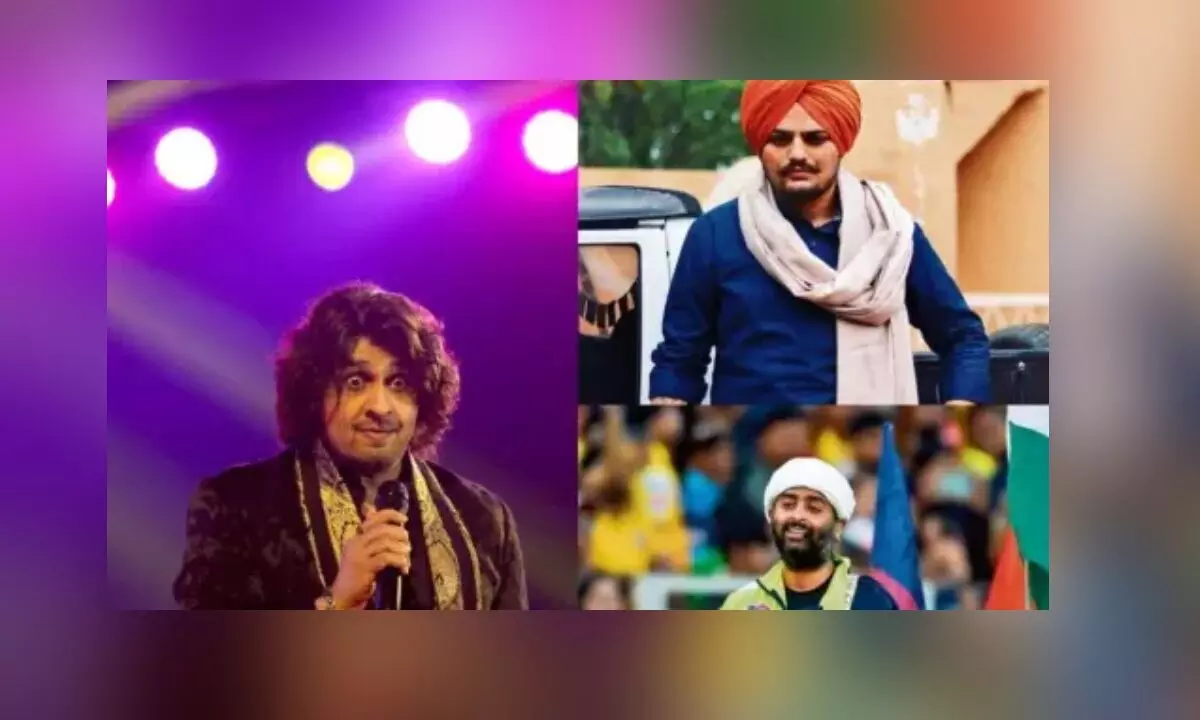AI hits high notes by mimicking Arijit, Atif, Sidhu, Sonu: Playback beware!
The utilization of AI technology to create music covers using the voices of deceased artists like KK, Sidhu Moosewala, Sonu Nigam, and Arijit Singh has shed light on the darker aspects of Artificial Intelligence. Imagining songs like "Bedardeya" from "Tu Jhoothi Main Makkaar" originally sung by Arijit Singh, being performed in the voice of the late singer KK, or "Gerua" in the voice of Atif Aslam, or even late Sidhu Moosewala's voice in "Tumhe Dillagi" originally sung by Nusrat Fateh Ali Khan, has become a reality that can be found with a simple YouTube search.
image for illustrative purpose

The utilization of AI technology to create music covers using the voices of deceased artists like KK, Sidhu Moosewala, Sonu Nigam, and Arijit Singh has shed light on the darker aspects of Artificial Intelligence. Imagining songs like "Bedardeya" from "Tu Jhoothi Main Makkaar" originally sung by Arijit Singh, being performed in the voice of the late singer KK, or "Gerua" in the voice of Atif Aslam, or even late Sidhu Moosewala's voice in "Tumhe Dillagi" originally sung by Nusrat Fateh Ali Khan, has become a reality that can be found with a simple YouTube search.
The growing attention towards AI, even among Western writers, has blurred the boundaries between reality and the artificial. Shaan, a singer and close friend of the late KK, expresses his discontent with AI's ability to reproduce KK's voice without his awareness, considering it an insensitive invasion of privacy. He believes that an artist's voice is a personal identifier and should not be replicated without their permission, as it raises questions about the authenticity and intention behind the rendition. While fun and spoof covers may be acceptable, Shaan opposes this practice becoming widespread.
Safir Anand, a senior partner at Anand and Anand, represented Amitabh Bachchan in a case where his voice was imitated for a lottery ad. The Delhi High Court prohibited the use of Bachchan's voice, image, or name without proper approval. Safir Anand explains that singers possess performing rights and moral rights over their works, and under copyright provisions, these rights can be enforced by the trusts and legal heirs of deceased artists. Currently, the use of AI-generated music and its potential infringement on third-party rights remains an unexplored territory, both in India and globally.
Music composer Salim Merchant acknowledges the potential benefits of AI when used cautiously. While recognizing the advantage of utilizing the voice of inaccessible artists, he questions the fairness of recording a song with an AI-generated singer without providing compensation to the deceased artist's family or heirs. Salim emphasizes that AI lacks the ability to truly emote and relies on a source of stimulation for its creations. He emphasizes the necessity of having an original source to create an AI model.
Nakkash Aziz, who uses AI to generate dummy words while writing lyrics, believes that ethical usage of AI that respects sentiments is acceptable, but he finds it disheartening if someone profits from using KK's voice without proper permission. Ehsaan Noorani, part of the Shankar-Ehsaan-Loy trio, considers AI a useful production tool but believes that the current capabilities are limited. He stresses the importance of obtaining permission from the surviving family or heirs of deceased artists when using voice recreation technology, even for recreational purposes.
In conclusion, the emergence of AI-generated music covers raises ethical concerns regarding privacy invasion, copyright infringement, and fair compensation for artists and their families. While AI can be a valuable tool in music production, its limitations and potential consequences need to be carefully considered and approached with respect for the rights and legacy of the artists involved.

